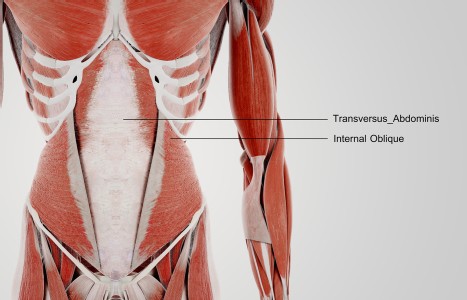TrA-2, my primary needle location, I needle 95% of the time and I think it works the best. You’ll know you have the right point location when you discover the muscle twitching when applying electric stimulation.
News in Brief
Singapore Official Predicts "Major Breakthroughs" for TCM
At a recent international conference in Singapore, a senior government official stated what many practitioners and patients have felt about traditional Chinese medicine for the past quarter century.
"I have seen enough to say that TCM is on the verge of some major breakthroughs in the next few years," said Chan Soo Sen, Singapore's senior parliamentary secretary of the Prime Minister's Office and Ministry of Health.
Chan's remarks were made during a keynote speech at the American Chinese Pharmaceutical Association's Fifth International Conference this past May. In his speech, he noted that traditional Chinese medicine "enjoys considerable popularity as a complementary form of health care" in Singapore, citing a recent city which showed that as much as 45% of the population has consulted a TCM practitioner in the past, and that 12% of outpatients prefer to see TCM providers over Western-trained physicians.
Chan added that there is a similar trend toward the use of traditional Chinese medicine in other countries, especially among young people, who consider TCM a form of "green medicine" that helps people get well without the side-effects that often accompany synthetic drugs and chemicals. Taking advantage of this trend, he said, could also have major economic benefits in the future.
"If we are prepared to invest in these areas, we will be able to benefit more from TCM's development tomorrow," said Chan.
Spotlight on New York College's New President
Dr. Alexander Schure has been named the new president of the New York College for Wholistic Health, Education and Research. The 81-year old Schure, an expert in marketing and development, has been brought in to lead an expansion project that will increase the number of degree programs offered at the college.
"Dr. Schure is going to broaden the academic basis at the school," enthused Donald Spector, chair of the college's board of trustees. "He will help form a bridge between traditional medicine and Oriental medicine."
Dr. Schure's career as an educator and administrator spans nearly half a century. After receiving his bachelor's degree at the City College of New York in 1947, followed by master's and doctoral degrees from New York University in 1948 and 1950, respectively, he went on to found the New York Institute of Technology in 1955, serving as its president and chancellor. He was also the chancellor of Nova Southeastern University in Fort Lauderdale, Florida for 15 years, helping that school's enrollment grow from eight students to more than 23,000.
New York College currently offers an associate's degree in massage therapy, a bachelor's degree in amma therapeutic massage, and postgraduate degrees in acupuncture and Oriental medicine. Under the expansion program, the board of trustees is considering adding early education and doctorate nursing programs.
Chinese Herb May Fight Cancer
Native to the mountains and slopes of China, India and Indonesia, the herb ya dan zi is used in traditional Chinese medicine to treat a variety of ailments, including fevers and dysentery. A team of scientists from the University of Illinois has discovered that ya dan zi may also stop the development of cancerous growths in laboratory animals.
"This was a new activity associated with a known compound," remarked Dr. A. Douglas Kinghorn, a professor at the university's Department of Pharmacy. "This was an unusual result we were not expecting."
In the study, presented at the annual meeting of the American Chemical Society in September, the investigators isolated the herb into 11 components. One of those components, flazin, stopped cancerous abnormalities from forming in mice.
As a result, the scientists are considering performing future tests with flazin to see if it can prevent the growth of other forms of cancer. "We were happy this worked so potently," Dr. Kinghorn enthused. "We feel this would be a reasonable lead for others to pursue."
First Graduation Ceremony at China International
August 16, 2001 was a special day for the faculty and staff of China International Medical University (CIMU). On that day, four students - June Oh, Mark Sisson, Adam Wiggins and Jonathan Wu -- received their diplomas, becoming the first class to graduate from the school's acupuncture program. The ceremony was attended by many prominent members of the acupuncture and Oriental medicine community, including Benjamin Yang, former chair of the California Acupuncture Committee, and an eight-person delegation from Shanghai University of Traditional Chinese Medicine.
As previously reported, Shanghai University has entered into an agreement with China International by which CIMU graduates will be eligible to enroll in the PhD program offered at Shanghai, with doctoral candidates conducting clinical research at both universities.
Also in attendance was E Xuewen, an education consul from the People's Republic of China. In a speech given at the ceremony, Mr. Xuewen revealed that he was impressed by the level of academic achievement earned by CIMU's graduates, and praised the school for its devotion to the education of traditional Chinese medicine. He added that CIMU has "marched the first step to spread out the real spirit" of TCM education to students in the U.S., and that the school should be respected and supported for its educational efforts.
Prince Charles to Help Build Alternative Hospital
England's Prince Charles has long been a proponent of alternative therapies. Since 1988, he has received regular treatment from Sarah Key, an Australian physiotherapist and osteopath, to relieve back pain caused by numerous skiing and polo injuries. In 1996, he contributed two million pounds (approximately $2.94 million U.S.) to help in the formation of the Foundation for Integrated Medicine, an organization designed to encourage collaboration among all forms of health care.
The prince's latest venture into the alternative health arena occurred this past August, when he announced his support for the building of a 100-bed hospital in London that will combine the best components of conventional and alternative medicine. The proposed hospital will open in late 2003 or early 2004, and will include treatments such as acupuncture, homeopathy and ayurvedic medicine.
The formation of the new hospital is the latest in a series of signs highlighting the progress of alternative medicine in the U.K. According to the London Sunday Times, there are now approximately 50,000 complementary and alternative practitioners in Great Britain, compared to only 36,000 general practitioners. Earlier this year, the National Health Service approved an £18.4 million plan to renovate the Royal London Homeopathic Hospital, the city's primary complementary health care facility.


